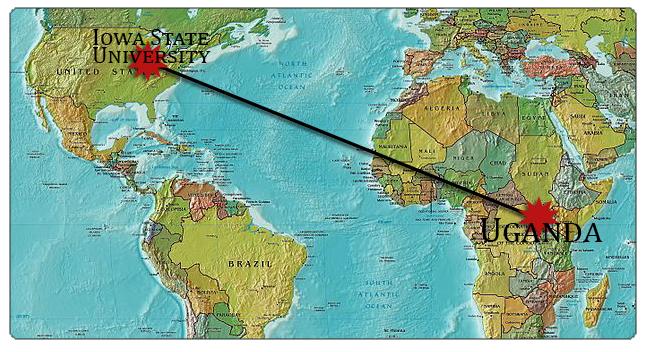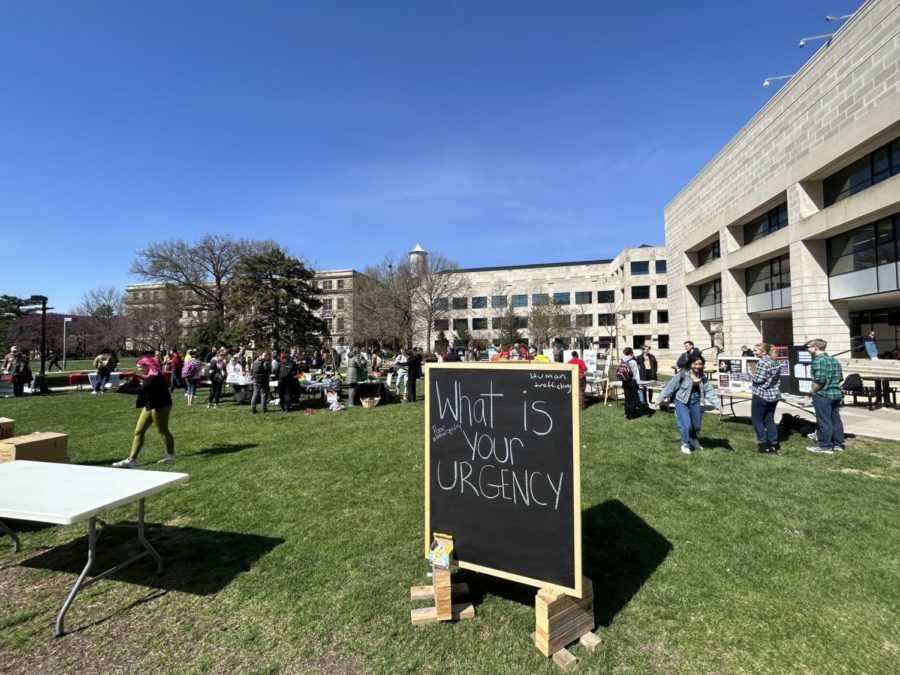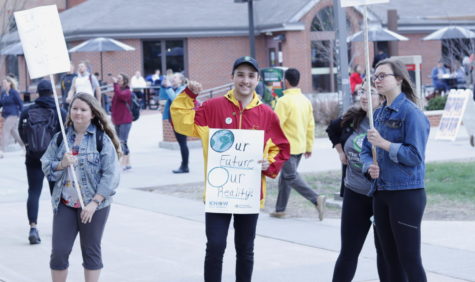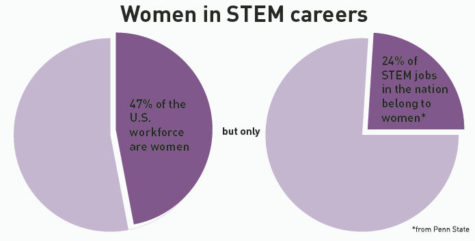Board of Regents approves independent service learning program in Uganda
Students travel to Uganda and make an impact.
September 3, 2013
ISU Global Programs has been approved to establish an office in Uganda as a nongovernmental organization.
The Board of Regents unanimously, with the exception of absent Regent Ruth Harkin, approved making the program independent at its June 5 meeting.
“Registering as an independent entity would allow us to do research as Iowa State University,” said David Acker, associate dean of academic and global programs in the College of Agriculture and Life Sciences. “We could operate our own education programs. We use [the] expertise of the university to help people in a rural part of Uganda.”
Since 2006, The Service Learning and School Garden Program of Iowa State has partnered with Volunteer Efforts in Development Cooperation, a program that only works in Uganda. Working in the Kamuli District, the groups combined their efforts to help improve the livelihoods of rural families.
“That would include income, food, security, child survival, education and everything that it takes to create a stable and fulfilling life,” Acker said. “This is a very poor part of Uganda. We picked it because it had big challenges. We wanted to be able to work in a place where the needs were very great.”
Before becoming a separate establishment, Iowa State had to work entirely through the Volunteer Efforts program because Iowa State was not permitted to operate as Iowa State.
“What we want to be able to do is continue to be able to work with that partner,” Acker said. “But we want to be able to establish ourselves in Uganda as a nongovernmental organization, so we can operate independently.”
Talk of independent registration began in 2010. Acker said he and other faculty did research throughout 2011 and 2012 to determine the Ugandan requirements and Board of Regents requirements in order to proceed to requesting registration.
“When we presented the recommendation to the Board of Regents, we had really done our homework,” Acker said. “We knew legal aspects, financial aspects, the risks, the rewards. It took a lot of time for people to figure out how to do this.”
Since approval, Acker said the group has collected documents and hopes that in a month or so, they can submit an application to the NGO board in Uganda.
“They’ll review [the application] and see that Iowa State has been a good partner with VEDCO … and has a good reputation,” Acker said. “It’s very likely they’ll approve our application.”
Acker said if the application is submitted in the next month, it will probably take two or three months to hear back from the NGO board.
Funding for the project is primarily provided from alumni and ISU friend donations.
Each summer, the program has taken undergraduate students from Iowa State to the Kamuli District for five weeks to conduct research projects, teach local primary school students, mostly ages 7 to 15, and work with Makerere University students.
ISU students, along with students from Makerere University, Ugan-da’s largest university located in Kampala, form a team working with nutrition education centers, rural development and student-chosen projects.
Examples of past projects include bee production, water collection and the concept of live fencing where trees are planted close together to grow together to keep cattle away from plants.
Students began getting involved in 2006 with six students from the College of Agriculture. Acker said interest is growing, with this past summer having about 13, including students from other areas such as the Greenlee School of Journalism and Communications and the College of Engineering.
Students would teach a few lessons while in the garden, then go to the schools to teach and after lunch by the Nile River, would return to working in the gardens with students to learn and interact with them.
ISU President Steven Leath had the opportunity to visit the Ugandan site this summer to witness the students at work.
“It’s a great program. I was very impressed to see the program first hand. The student interest in global resource management, international agriculture and sustainable agriculture is as high as we’ve ever seen it,” Leath said. “It makes sense to push this program forward because there’s tremendous interest.”
Acker said the main focus for the program is to sit down and do strategic planning to be able to operate independently.
“[Working] with the Makerere students and the children of the schools, I think [ISU] students find it very rewarding to build relationships with those students and transcend the cultural and socioeconomic gaps by understanding each other better,” Clark said. “There’s definitely a cultural exchange from both sides, which is really cool.”

















